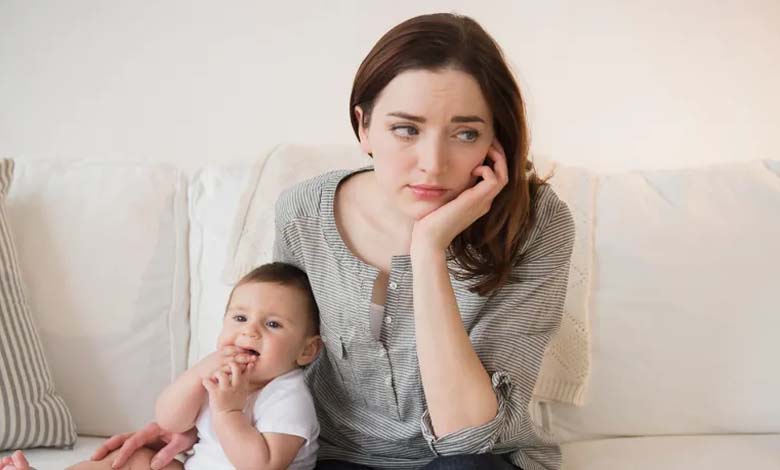Which Mothers Are Most at Risk of Postpartum Depression?

Postpartum depression is a common issue among mothers, especially those experiencing motherhood for the first time; research indicates that 10-15% of women suffer from this type of depression within the first few weeks after giving birth.
-
A Scientific Study Reveals a Promising Solution for Depression and Heart Diseases
-
Simple Exercises Reduce Rates of Depression and Anxiety
Although this phenomenon is receiving increasing attention in scientific and social circles, awareness of its symptoms and treatment options remains relatively limited, experts say.
According to a study published by King’s College London in 2018, postpartum depression may appear suddenly or gradually, with symptoms including persistent sadness, loss of energy, and difficulty bonding with the child.
-
The Outcome of Depression and Suffering… Johnny Depp Presents “Five”
-
The Importance of Mental Health: Understanding and Managing Anxiety, Depression, and Stress
The study adds that contributing factors may include significant “hormonal shifts” following childbirth, as well as psychological stress stemming from adapting to new maternal responsibilities.
To further understand the causes of this depression, Yale University conducted a study in 2020 involving hundreds of new mothers, finding that women who lack psychological or social support are more prone to depression compared to those with strong family support. The study concluded that social and psychological factors play a crucial role in alleviating or worsening the symptoms of postpartum depression.
-
5 Signs That You Are “Toxic” Towards Yourself
-
Early Symptoms Indicating Mental Health Issues in the Elderly
Dr. Susan Warner, a mental health specialist and participant in research conducted at Harvard University, highlights that some women feel reluctant to discuss this type of depression due to fear of social stigma, which can lead to delayed treatment and help-seeking.
She adds: “Encouraging women to seek help at the right time can be an important step toward reducing symptoms and providing effective support to help them adjust to the challenges of motherhood.”
-
This is the “ideal” number of hours of sleep for each age group
-
School or Parents… Who is Responsible for Protecting Children from Social Media?
Psychotherapy and cognitive behavioral therapy are among the most effective methods for treating postpartum depression, according to a study published in the medical journal “The Lancet” in 2021, which noted that early professional support significantly helps reduce symptoms.
Doctors also recommend relaxation techniques and good nutrition as supplementary treatments.
Experts agree that there is still a need for greater awareness of postpartum depression, both within health institutions and local communities. New mothers need psychological and social support more than ever to overcome this hidden challenge, which will enhance their well-being and that of their child, strengthening the quality of life for the entire family.












